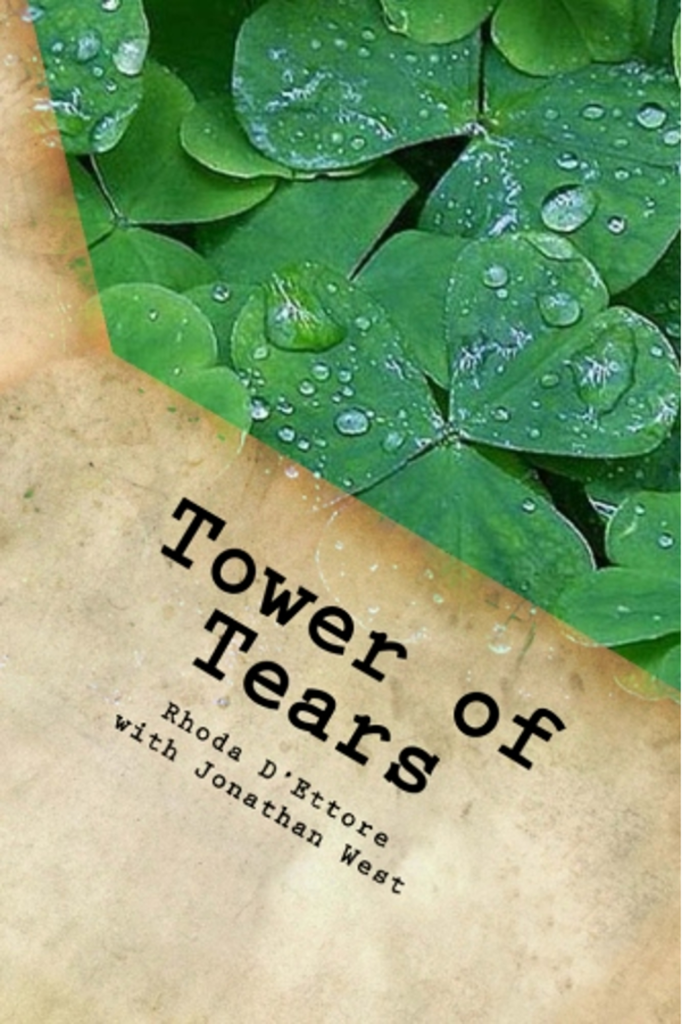Please welcome Rhoda as she kindly stops here on her Historical Fiction Virtual Book Tour to discuss her new book. She has brought us a terrific guest post!!!
 The difficulties suffered by women of past generations who worked in factories to provide for their families is almost unimaginable to us today. Factory work took a toll on women physically, emotionally, and financially. In addition, factory work damaged the relationships with their partners and children.
The difficulties suffered by women of past generations who worked in factories to provide for their families is almost unimaginable to us today. Factory work took a toll on women physically, emotionally, and financially. In addition, factory work damaged the relationships with their partners and children.
Physically, most factory workers of the past had to endure tiresomely long days. Standing on their feet, in the extreme cold and heat without modern temperature controls must have been unbearable. For most of American history, the factory workers received only Sundays off. At the time, Sunday was considered a day of rest due to stricter applications of biblical preachings. Overnight shifts and holidays were required, and factories often produced a lot of smog and pollution. Not only were the workers covered with soot, but they were inhaling it. They would blow their noses and the soot would be be expelled from the nose onto the handkerchief. Many factories required huge fires or boilers of some sort to produce the energy to power the equipment that was being used. Thus, adding to the extreme temperatures.
As second class citizens of decades past, women were often thought of as expendable. They were intimidated by threats that a man could replace them. Many women lost their jobs during pregnancy because the employer did not want to be concerned with physical limitations of the pregnant women. Nor did the employers want to lose an employee during the delivery and recovery period. Unlike seamstress or house servant jobs, factories put women side by side with male co-workers. Many women were sexually harassed or assaulted because the employers and male co-workers realized there was no place for the female worker to go. A woman who had a family could not just quit, file a lawsuit, or collect unemployment. She had to endure the disrespect and violation that her employers or co-workers wished to inflict upon her. It was a trap--a trap that was created by the society of men in power. The laws of the time stated that a woman could not be raped, claiming it was physically impossible. In her 2007 book, Rape: A History from 1860 to the present, author Joanna Bourke quoted directly from medical textbooks of the past that rape was impossible. The medical and legal profession claimed "it is impossible to sheath a sword into a vibrating scabbard." Immigrant women suffered even worse. Signs were often displayed “No Irish Need Apply”, causing more stress for women. This was the reality women faced, not just in the factories, but in all aspects of their lives.
Some factories who employed women paid them much less than male counterparts. In addition, if the woman was an immigrant she was often paid even less. The only way for such women to be able to work and ensure care for their children would be to live with family. Often there would be groups of people living in one household that functioned as one unit. The large amount of people were often cramped into close quarters because wages were too low to pay for larger homes. It is nearly unfathomable for Americans today to repair shoes, or stuff items in their shoes to prolong wear. Darning socks is a thing of the past. These were amongst the things that were required of low paying factory workers in order to financially survive.
In 1975, author Henry "Hank" Leiferman wrote of the struggles of one mill worker in his book Crystal Lee: A Woman of Inheritance. Crystal Lee Pulley fought for better working conditions and unionization of her mill. She was fired from the mill, yet gained a position with the union to improve conditions elsewhere. However, since 1976 the American textile industry has lost 2.6 million jobs. Although conditions improved, the jobs eventually disappeared. This left women unemployed and competing with others who were better educated.
Factory and/or warehouse life today still causes great hardships for women and their families. Many women are forced to work overnight shifts, weekends, and holidays. Having to work a shift such as 2:30pm to 11:00 pm causes a disconnect in the family because the mother only sees her children an hour or so before sending them off to school in the morning. By the time they return from school, she is already at work. The burdens of childcare costs are staggering. Often the woman is a single mother who lives paycheck to paycheck. Even unionized warehouse or factory establishments which have better conditions overall cause much stress amongst the families.
Although working conditions and the social status of women have improved over the last century, women are still facing obstacles in the workplace. Perhaps looking to their sisters of the past, women of the present can gain the strength to face their own struggles today.
***
Betrayal. Despair. Murder. Mystery. Romance. Blackmail. "If God be good, Mr. Landon will burn in the eternal flames of hell. If God be bad, he will suffer much worse." In 1820, a young woman and her son leave Ireland for a better life in America. She soon suffers heartache and tragedy, while residing with family whom she has never met. Unbeknownst to her, the family had already set her up with employment in a factory--a factory run by a lecherous man. This is the first book in a series that will follow the McClusky family while they become Americanized while face with the Potato Famine, the US Civil War, and the Industrial Revolution.
CreateSpace Independent Publishing
Formats: eBook, Paperback, Audio Book
Genre: Historical Fiction
READ AN EXCERPT.
Buy the Book
Amazon (Audio Book)
National Military Family Association

$1 per sale will be donated, regardless of what format is purchased---ebook, print, audiobook & regardless of site purchased---will be donated to the National Military Family Association. This organization helps families reconnect when the parents return from deployments, as well as helping families with other transitions and keeping the children active while the parents are deployed.
 About the Author
About the Author
Rhoda D'Ettore was born in Woodbury, New Jersey, into a family of 5 siblings--which has provided her with plenty of comical material. She began working at the United States Postal Service at 25 years old, and over the past 15 years has accumulated many humorous stories about situations that the public never gets to know about. Her first ebook, "Goin' Postal: True Stories of a U.S. Postal Worker" was so popular that readers requested it in paperback. Recently, she published the humorous "Goin' Postal" in paperback along with another story entitled, "The Creek: Where Stories of the Past Come Alive". Combining these two into one book may seem strange, as one is humorous and the other is a heart wrenching historical fiction, however, doing so proves to the reader Rhoda D'Ettore's versatility.
Rhoda D'Ettore received her degree in Human & Social Services while working at USPS, has travelled extensively, and loves history. Over the years she has volunteered for several community service organizations, including fostering abused and neglected dogs for a Dalmatian rescue.For more information please visit Rhoda's website. You can also find her on Facebook and Twitter.
Tower of Tears Blog Tour Schedule
Monday, August 25Spotlight & Giveaway at What Is That Book About
Tuesday, August 26
Spotlight & Giveaway at Broken Teepee
Wednesday, August 27
Guest Post at Mythical Books
Friday, August 29
Spotlight & Giveaway at So Many Precious Books, So Little Time
Monday, September 1
Guest Post at Book Babe
Thursday, September 4
Review at CelticLady's Reviews
Monday, September 8
Interview & Giveaway at Historical Fiction Connection
Tuesday, September 9
Review at Griperang's Bookmarks
Thursday, September 11
Review at Jorie Loves a Story
Friday, September 12
Interview at Jorie Loves a Story
Monday, September 15
Review at WV Stitcher
Tuesday, September 16
Review & Giveaway at Beth's Book Reviews
Friday, September 19
Review at Unshelfish
Review & Giveaway at Brooke Blogs




No comments:
Post a Comment